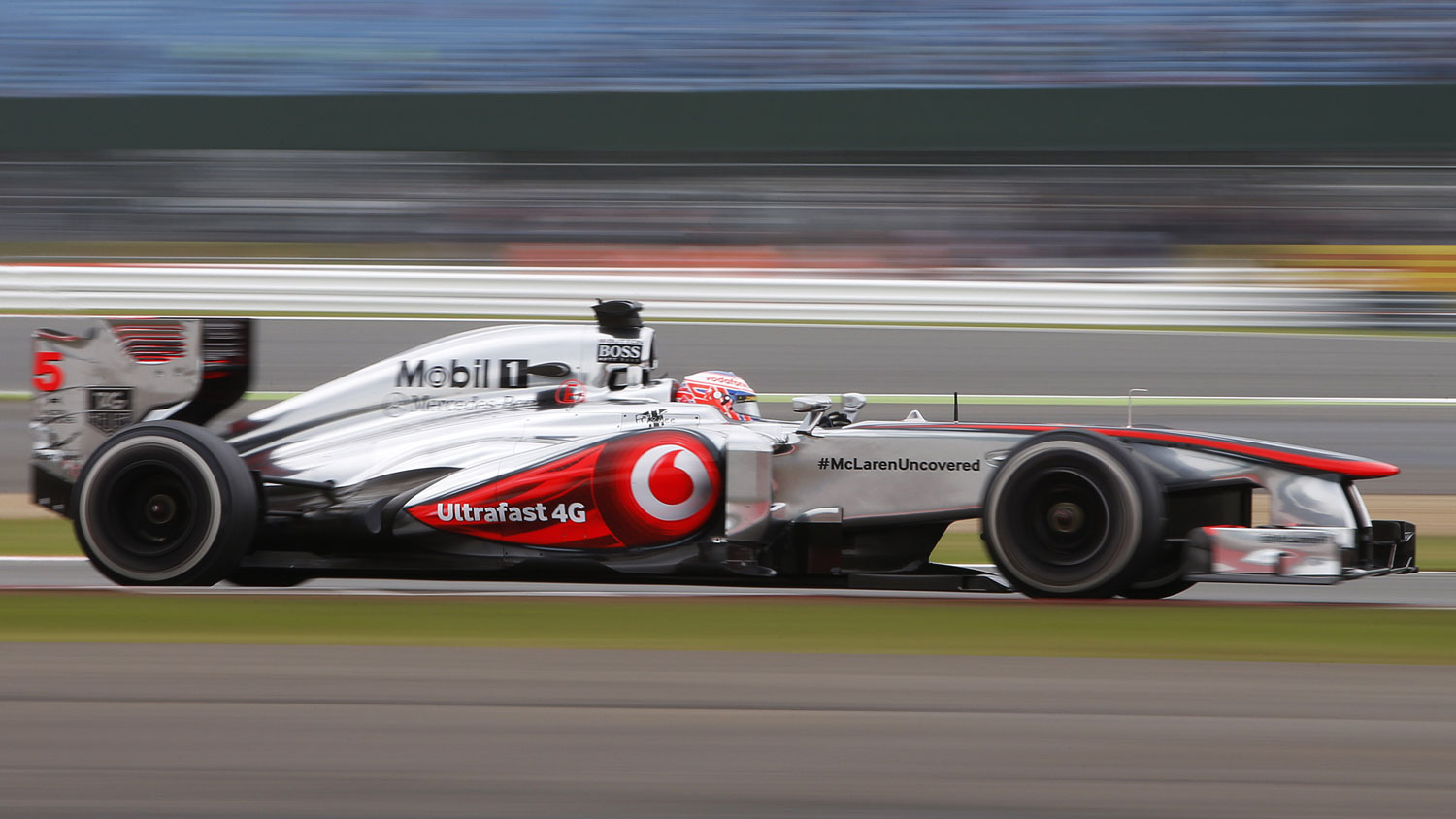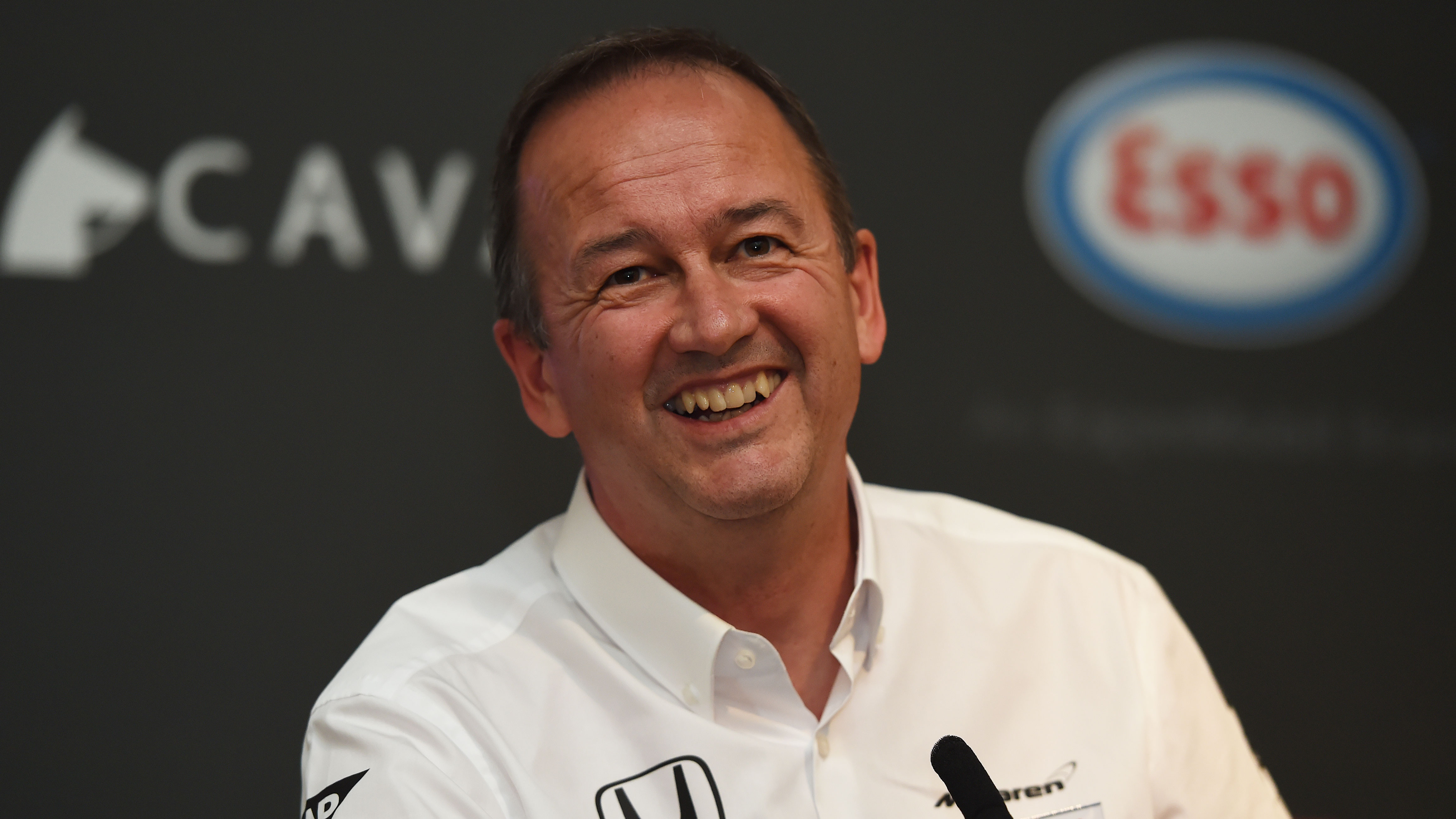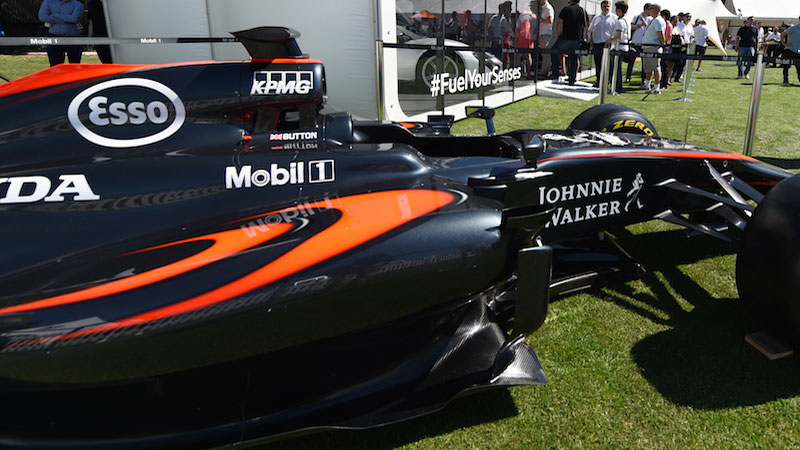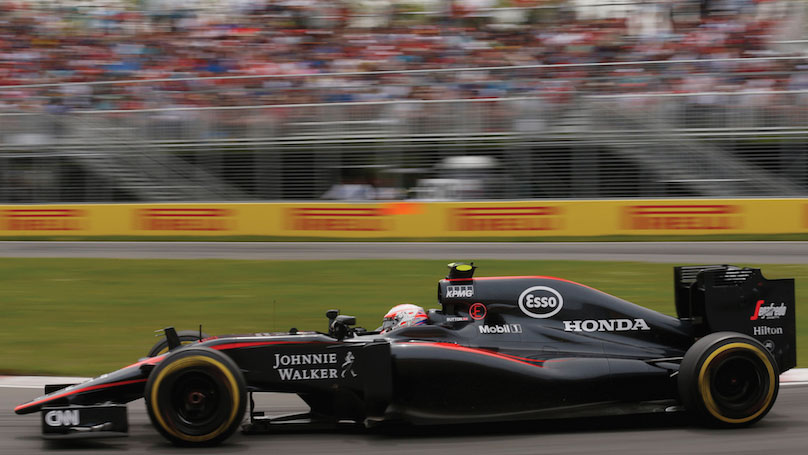How Formula 1 is improving your car, your football team and your hospital

From real-time telemetry data to hybrid engines and improved tyres, Formula 1 is changing the world we live in. It's a given that innovations from the track eventually filter down to road cars, but F1's influence goes way beyond the highways, as Jonathan Neale, Acting CEO of McLaren Racing, explained when we sat down with him during London Race Week. From children's hospitals to drilling tech in the depths of the earth, the influence of F1 is everywhere.
The fact that these advances aren't all obvious is in part because many of them are incremental and behind-the-scenes, so the technology powering your everyday life is constantly and invisibly improving. One area where this is happening is, unsurprisingly, tyres: "Tyre technology is constantly changing through pushing in sports," explains Neale.
"The metals and materials we use, and some of the processes there, are aiding the proliferation of more affordable composite technology, e.g. carbon fibre. It's starting to make its way into, I wouldn't say everyday cars, but certainly into sports cars and premium-end models."
Carbon fibre has a range of advantages for our everyday vehicles as it's strong, yet extremely lightweight, which in turn improves performance, stiffness, fuel efficiency and longevity.

Lube me up
It's not just the metals and materials which are changing motor racing and our cars on the road. There's also a surprisingly large amount of R&D poured into oils and fuels. McLaren works closely with Esso as the companies look to get the most from the liquids used in cars. "The development of synthetic oils and fuels is hugely performance enhancing, so what scarce fossil resources we have, we have to get the most from it," says Neale.
"There's less waste and the fuel emissions from it are much cleaner because we don't want partial combustion. In our search for performance we're looking for really clean, full combustion and maximum energy from it. There's an efficiency gain in that which is directly relevant to the engine manufacturers, and to Esso for anyone who's putting Esso fuels in their tanks."

Cleaner fuels mean better performance, which means you'll get more miles to the gallon every time you fill up, while causing less pollution. And such advances aren't limited to what goes in the tank.
Sign up for breaking news, reviews, opinion, top tech deals, and more.
"The same is true with gearbox oils," says Neale. "If you look at Mobil 1, as a product it has been largely branded the same for 20 years, but what's in it changes constantly." These changes have a direct benefit to drivers, even if they don't know there's anything new about the product they're using, and to non-drivers too.
"If you're in a place like Cairo in Egypt – where there are a lot of high mileage cars on the streets in densely populated areas – the emission effects, life of the cars and just the value to the economy and the local people is really huge." Refined fuels and oils help to extend the life of these vehicles, as well as giving the obvious performance and emission advantages.
Milk floats, sensors and medical diagnosis
Continuing on the environmental benefits, Neale explains how the introduction of smaller engine classes and electric power has seen a shift in thinking and manufacturing in the consumer car market: "The power unit in Formula 1 has moved from being a V12 to V10 to V8 to V6. Many of the high-end premium and sedan cars are now following suit and downsizing engine technology, moving to direct fuel injection and turbo charged.
"Increasingly, more cars have some kind of hybrid technology, and I think that's due to F1's push on things like the acceleration of Lithium Ion Technology, charge density and batteries. I think the chemistry in Lithium Ion batteries went up enormously from about 2011 when KERS [kinetic energy recovery system] first came in to Formula 1 and we started doing the battery technology."
If talk of hybrid technology has you thinking "milk float," Neale is here to reassure you. This is technology that doesn't compromise: "I think before we saw high performance cars with hybrids there was a fear that everybody would be coming down in a silent ice cream van and it would all be very sedate, but there are very good reasons why the technology is very powerful."

Sensing the future
Big data has a huge part to play in the hyper-controlled world of F1, where a fraction of a second can be the difference between triumph or disaster. "We do a huge amount of real-time data capture from our F1 cars. The car steams round with 150 sensors on it, streaming data off at about 4mbps," explains Neale.
"We have to get that data in near real-time back to the UK where we can then process it with huge amounts of supercomputing."
This happens live during practice, qualifying and the race itself, allowing the teams back in the factory in the UK and on the pitwall to make split second decisions on strategy, driving style, and (if required) remote repairs and tuning of the car.
Paging Dr. Data
But the benefits of detailed real-time feedback aren't limited to motor racing, and McLaren is working with a wide range of companies and organisations.
"Our ability to develop sensor technology and telemetry has been used, and is starting to spawn out, in lots of other markets. Through McLaren Applied Technologies we're working with football clubs, rugby clubs, we did some work with the Olympics and we're in offshore drilling for the positioning of drill heads," says Neale.
"We're talking to children's hospitals about paediatrics. If you have a very sick child, you want to get some telemetry on that child quickly, and we can let the specialists in Birmingham City Hospital know immediately what's going on within that first two or three minutes."
The focus here is supply decision makers with as much information as possible at the right time, and it's this ability that will change the way we work in the future. "The great thing about the digital age is trying to take a decision at the point of most knowledge in real-time," says Neale, "not necessarily taking a position at the most convenient piece of geography."
That means car technology isn't just about getting us from A to B anymore: it's about putting us in the best possible position, whatever we're doing.

TechRadar's former Global Managing Editor, John has been a technology journalist for more than a decade, and over the years has built up a vast knowledge of the tech industry. He’s interviewed CEOs from some of the world’s biggest tech firms, visited their HQs, and appeared on live TV and radio, including Sky News, BBC News, BBC World News, Al Jazeera, LBC, and BBC Radio 4.